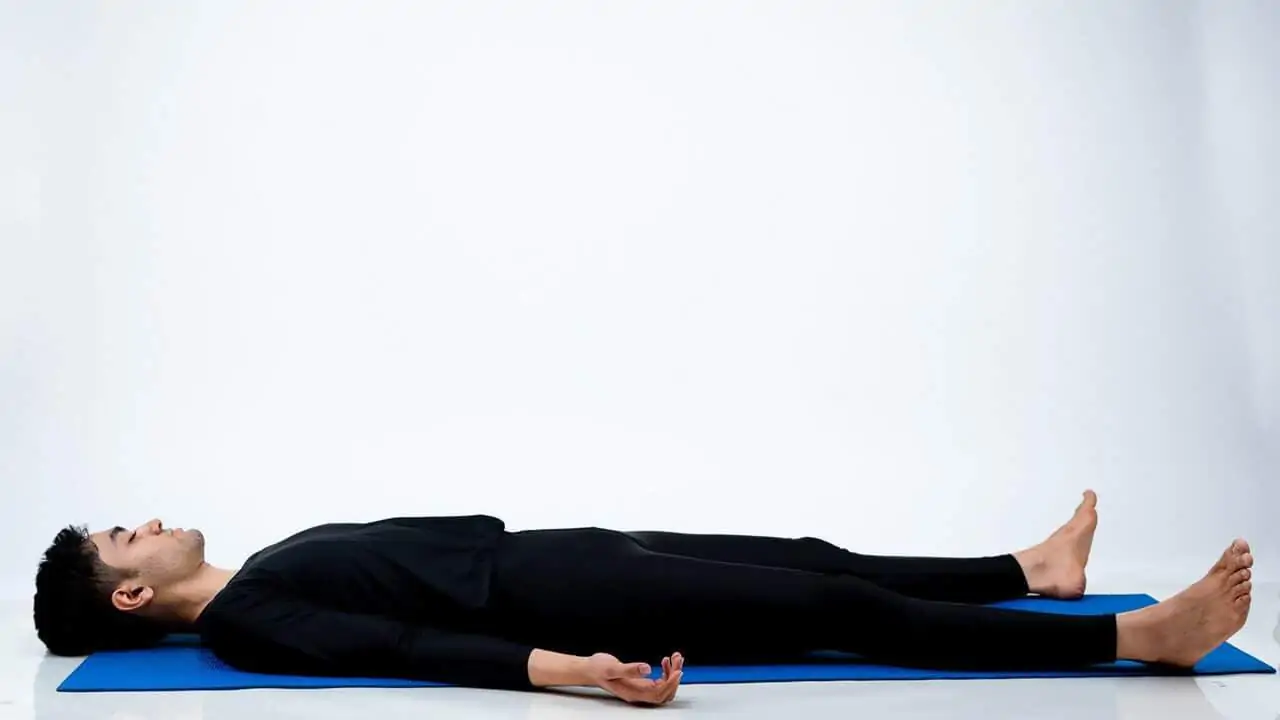Reading time: 10 minutes
— Written by Jennifer Branett and Dr. Sandip Roy.Are you feeling stuck and losing clarity, and your brain is not functioning fully? Find out how to refresh your mind with these science-backed strategies.
If you don’t regularly tend to your body and mind, you run a risk of falling prey to stress-fuelled physical illnesses (called psychosomatic illnesses).
You may feel burned out, fatigued, indecisive, and anxious. So, as science suggests, you better free up a few minutes every day to relax your body and reboot your brain.
Key Takeaways:
Meditate to calm your mind. Exercise for an energy boost. Take a walk outside to connect with nature. Take a short nap to rejuvenate your alertness. Sing or dance to lighten your mood. Paint or doodle to unleash your creativity. Listen to relaxing music. Do yoga to harmonize. Avoid social media scrolling.
How To Refresh Your Mind
Here are ten science-backed tips to refresh your mind and reboot your brain:
1. Do Belly Breathing.
People who practice deep belly breathing (or diaphragmatic breathing) feel less anxious. There’s a scientific explanation.
Slow and deep breathing stimulates our wandering nerve (scientifically called the vagus nerve). Find out other ways to calm your vagus nerve,
Vagus stimulation releases an anti-stress chemical called acetylcholine (ACh), the chief neurotransmitter of our parasympathetic system, which slows down our heartbeats and lowers our blood pressure.

A quick three-step way to do the belly breathing exercise is:
- Lie down on your back. Place your right hand over your belly. Place your left hand on your chest.
- Draw in a deep breath through your nose so your belly rises and lifts your right hand. Now hold your breath for 4 to 5 seconds. Then exhale through your mouth, making your belly (and your hand) fall in.
- Throughout your belly-breathing cycle, try to keep your left still, making sure your chest isn’t rising or falling with your breaths. For maximum benefit, repeat it for up to 10 minutes each day.
2. Practice This Yoga Pose.
Relaxation is a conscious endeavor, lying somewhere between effort and non-effort.
In this state of alert relaxation, you are not in the grip of automatic muscle tension. Your muscles are relaxed, yet they can take commands from your brain to move at will.
Shavasana, or the Corpse Pose Asana, is an effective pose for deep relaxation. Usually done at the end of a yoga session, it helps reduce blood pressure and anxiety. You can do it any time of the day.

Here’s how to do the Shavasana:
- Lie down flat on your back with your arms and legs spread slightly apart. Close your eyes and take a few relaxing breaths.
- Focus on one part of your body and relax it. You may start with your toes and gradually relax your whole feet. Move your focus to your ankles, lower legs, and knees. Relax them.
- Keep going up into the next body part until you relax your whole body. All through, keep breathing unhurriedly. Stay in this pose for 5 to 10 minutes. Then open your eyes, sit up, stretch your arms, take a deep breath, and stand up.
3. Eat A Brain-Boosting Lunch.
Let’s reveal some highly useful facts from nutrition science.
Studies suggest a strong link between what we eat and how our brain performs. Eating right can improve our mental output and well-being.
- Researchers have found that a Mediterranean diet rich in antioxidants can improve cognitive function in elderly people at high risk of heart disease.
- Foods such as avocados, blueberries, and green tea can have a relaxing effect on the mind, while comfort foods can lower stress hormones.
- Artificial sweeteners like aspartame can lead to anxiety, insomnia, mood swings, and headaches. Recently, erythritol, a zero-calorie sweetener, was found to raise the risk of heart attacks.
- Studies show that sleep-deprived people are more likely to consume energy-dense foods and fewer portions of vegetables. And, a concoction of melatonin, magnesium, and zinc can improve sleep quality and total sleep time.
- Mindful eating is also an excellent way to use food to refresh your mind.
So, if you’re feeling a little tired and hard to discover new ideas, grab a Mediterranean lunch.
4. Listen To This Music To Relax.
Listening to music can help decrease stress-related mind-body responses, like lowering of cortisol levels, heart rate, and blood pressure. It can also make people feel less worried, anxious, restless, or nervous.
- A study by Michigan State, Carleton, and Colorado State universities partnered with the National Park Service, analyzing 18 studies on the impact of natural sounds on human health.
- The study found that listening to existing natural sounds can decrease stress and pain, improve cognitive performance, and enhance mood.
- Music listening can decrease anxiety levels and lower systolic BP, with the most powerful effects seen when relaxation is the reason for listening to music.
- White noise designed to aid relaxation and stress reduction can also be effective.
- Listening to natural sounds such as the noise of the forest, the chirping of birds, the sound of flowing water, and the traffic hum can also be calming.
- Binaural beats, a type of sound that generates specific brain waves, particularly the alpha pattern, can enhance relaxation.
- In an experiment, patients who listened to binaural beat audio before cataract surgery had lower heart rates compared to those who listened to plain music or no music.
What type of music should you listen to relax?
Music with a slow tempo (60–80 bpm), without lyrics, usually works best. E.g., natural sounds and slow classical music.
- Research suggests that having a choice of what to listen to has more beneficial effects than music chosen by someone else.
- This study found that driving with natural sounds gave drivers a sense of control, concentration, and enjoyment, and improved driving performance, while hard rock music negatively impacted it.
- This study found that Meditative Binaural Music (MBM) can help relax as much as calm classical music, but its effect varies with age. Younger listeners feel significantly calmer when listening to MBM with binaural beats, while older adults find low-arousal classical music most comforting.
5. Get Regular Physical Exercise.
Physical exercise is an effective remedy to de-stress your life and refresh your mind.
- Physically fit people show reduced cardiovascular and neurohormonal responses to psychosocial stress, as compared to those who are unfit.
- Physical training raises our resilience to stress-causing situations.
- Rats have been shown to have reduced startle response and lower anxiety when they were earlier trained on a treadmill, as compared to sedentary ones.
- The researchers concluded that endurance training helps grow resilience and recovery from stress.
- Regular exercise may also have an antidepressant effect by protecting us from being bogged down by chronic stress.
- Exercise also increases your lifespan. Those who walk briskly for 150+ min/week can increase their life expectancy by 3.4 – 4.5 years, whatever their body weight.
6. Spend Time With Cute Animals.
Pet therapy or Animal-assisted therapy is becoming increasingly popular.

Emotional support animals (ESAs) have been used to encourage older adults to communicate more and improve the wellbeing of those with serious mental illness.
This study found that interacting with guide dogs can help reduce stress. The participant’s blood pressure and anxiety levels were found to have lowered after spending time with the dogs.
- Interacting with animals regularly can lower blood pressure and reduce stress, as compared to those who rarely come in contact with animals.
- Getting a pet like a puppy or a kitten, playing with a friend’s cat, or taking a neighbor’s dog for a walk can help you feel calmer.
- If you’re still feeling stressed, animal-assisted psychotherapy may be an option. This therapy involves using animals like cats, dogs, or horses to help reduce stress and worries.
- According to a Japanese study, merely looking at pictures of cute animals can reduce stress and anxiety and improve mood.

7. Distract From The Present Stressful Event.
Practicing your hobbies is a great way to take your mind’s focus away from stress and anxiety. Here are some distracting activities that can calm and refresh your mind:
Try painting, sketching, or even doodling an image. You’ll definitely get compelled to concentrate on making the drawing while pulling yourself away from thinking about the causes of your stress.
For some, weaving bracelets or knitting sweaters is another great way to divert the focus from the stressors.

8. Avoid Digital Devices and Social Media.
- Social media can induce stress and harm a person’s mood and mental health, according to social scientists at Facebook.
- A German study found that Facebook users score higher on narcissism, self-esteem, and extroversion compared to those who don’t use the platform. However, users also report higher values of social support, life satisfaction, and subjective happiness.
- Spending excessive time on social media apps like Instagram or TikTok (that scroll non-stop) can prevent you from refreshing your mind from stress.
- Shutting off tech devices like cell phones, televisions, laptops, and computers can provide a sense of relaxation and help you feel less stressed.
- Trying an occasional digital detox, which is refraining from using digital devices and social media platforms, could help you feel refreshed and relaxed.
A digital detox is a self-imposed act of not using digital devices like smartphones and computers and avoiding social media platforms.
9. Spend Quality Time With Your Loved Ones.
Did you know that hugs can help refresh your mind after a stressful day?
Hugs feel good because they activate the “cuddle nerves,” also known as c-tactile afferents, in our skin. These nerves send signals to the brain’s emotion-processing networks, releasing oxytocin and endorphins, which reduce stress and promote social bonding.
- Stress can negatively impact our social lives, causing us to become hostile and irritable towards others and ultimately withdraw.
- However, isolating ourselves when stressed can actually increase our stress levels as we focus more on our stressors.
- Spending time with family and friends can help us reduce stress and provide better coping mechanisms.
- Studies have shown that social support not only reduces stress levels but also lessens the sensation of pain in stressful situations, such as immersing a hand in ice-cold water.
10. Take Yourself On A Vacation, Even If Solo.
Now, this may not be a quick way to refresh your mind. But it is something that can keep your brain rejuvenated for weeks and months.
To quickly refresh your mind, just revive your vacation memories.
- A vacation can refresh your mind and help you forget stressors.
- Connecting with nature in your vacation spot can help you recover faster.
- Planning an outing with friends to a peaceful location can help you recover from stress.
- Researchers at the University of California-San Francisco found that the “vacation effect” benefits people both physically and psychologically.
Final Words
The main idea is to unplug from your daily grind so that you can come back to it with more vigor and vitality, within minutes. So, do one of the above activities for a few minutes — NOW.
Finally, my message to you:
Build the self-belief that you can handle your stresses. As it has been proven, stress does not get to you too much if you believe you can handle it.
• • •
Author Bios: Jennifer Branett, who writes on healthcare, wrote an early, short version of this article. Expanded and edited by Dr. Sandip Roy.
√ Also Read: 10 Greatest Happiness Hacks From Positive Psychology
√ Please spread the word if you found this helpful.
• Our Story!
